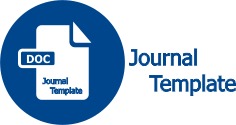PEMASARAN PRODUK OLAHAN IKAN LAUT UKM KENJERAN SURABAYA BERBASIS MARKETING MIX SYARIAH
DOI:
https://doi.org/10.30651/blc.v13i02.1325Abstrak
ABSTRACT
Marketing advantage can be achieved by considering 7 (seven) variables of "Marketing Mix" consisting of Product, Price, Place (Distibution), Promotion, People, Process, and Physical Evidence. Given 87.18% of the Indonesian population embraced Islam (Shaw, 2006) it is very relevant when applied model of Sharia Marketing. Through Sharia Marketing Mix the whole process, both the creation process, the supply and the change of value (value), should not be in conflict with the Islamic muamalah and the principle of muamalah.
The results showed that the processed fish products of UKM Kenjeran Surabaya fish depends on the catch of fishermen both in quantity and quality. The pricing is in agreement with the seller-buyer, and there is no element of usury. Distribution of product marketing is marketed in the surrounding area and serving orders. Promotion is done through exhibition when in village or neighborhood RT / RW held a celebration. Reasonable marketing service, with greetings, greetings, smiles, courtesy, and courtesy. The conventional marketing process has not yet paid attention to attractive product packaging and brand (brand) that can be known to the wider community. Physical proof of marketing is still used simple and simplistic recording.
Keywords : SME, Product Marketing, Sharia Marketing Mix
Correspondence to : siti.maro39ah@yahoo.com
Referensi
Alma, B. (2005). Manajemen Pemasaran dan Pemasaran Jasa .Bandung: CV Alfabeta.
Biro Pusat Statistik Jawa Timur (2013). Trade Statitics.Tahun 2013, Kerja sama dengan
Kementerian UKM. BPS: Jakarta.
Firmansyah, M. A., & Mahardhika, B. W. (2015). Pengaruh Strategi Marketing Mix (Produk, Harga, Promosi Dan Distribusi) Terhadap Keputusan Pembelian Konsumen Batik Di Surabaya. Balance, 12(02).
Firmansyah, M.A. (2010). Pengaruh Bauran Pemasaran Terhadap Putusan Pembelian Konsumen Sepeda Motor Honda, Yamaha dan Suzuki di Surabaya. Merdeka Ekonomi Surabaya.
Kertajaya, H dan Sula, M.S. (2006). Marketing Syariah. Bandung: Mizan.
Kotler, P. (2009). Manajemen Pemasaran jilid 1 da n 2 (Alih bahasa oleh Hendra Teguh dkk).Jakarta: Prenhalindo.
Kotler, K dan Keller (2008). Manajemen Pemasaran. Edisi Ketiga Belas Jilid 1. Jakarta: Erlangga.
Qardawi, Y. (1997). Norma dan Etika Ekonomi Islam. (Terjemah Zainal Arifinet.al). Jakarta: Gema Insani.
Schiffman, L. & Kanuk L.,L. (2009). Consumer .Jakarta : PT. Indeks.
Shaw, E. (2006). Indonesian Religions: Over view of World Religions. Retrieved March 8,2016.
Stanton, W. J. (2008). Fundamental of Marketing.Mc.Graw Hill Inc.
Sula, M.S. (2004). Asuransi Syariah (Life and General): Konsep dan Sistem Operasional. Jakarta: Gema Insani Press.
Yazid, S. (2009). Pemasaran Konsep dan Implementasi. Yogyakarta: Ekonisia.
Yuliawati, D. (2012). Analisis Strategi Pemasaran Pada UMKM Subsistem Agribisnis Bandeng Presto di Kota Semarang. Tesis Tidak Dipublikasikan. Semarang: Program Pascasarjana Universitas Diponegoro Semarang.














